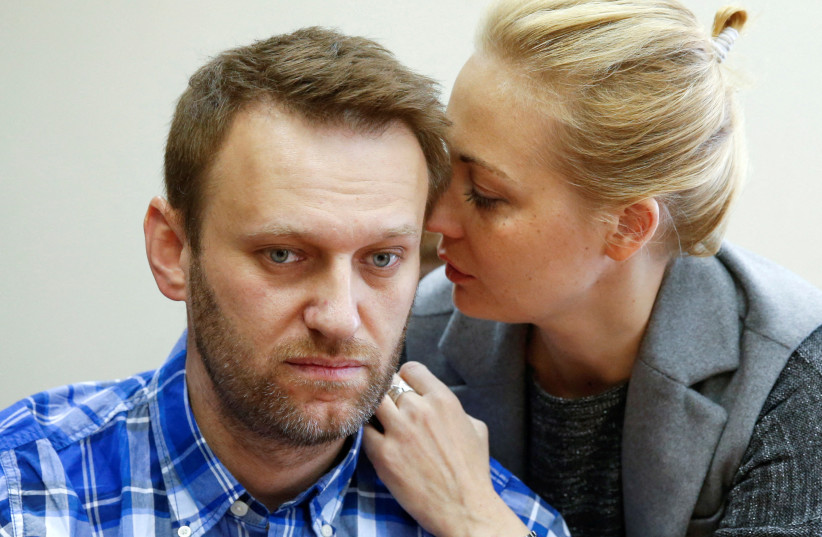The widow of Alexei Navalny, Russian President Vladimir Putin's nemesis who died in an Arctic prison last week, joins EU foreign ministers in Brussels on Monday, days before the two-year mark of Russia's war on Ukraine.
Yulia Navalnaya told a Western gathering of leaders, diplomats, and other officials in Munich on Friday that Putin and his allies would bear responsibility "for what they did to our country, to my family, to my husband."
The chairman of the bloc's 27 foreign ministers' discussions on Monday, foreign policy chief Josep Borrell, announced Navalnaya's visit, saying the gathering would highlight "support to freedom fighters in Russia and honor the memory of Alexei Navalny."

He collapsed after a walk at the Polar Wolf penal colony, Russian authorities said, where he was serving a three-decade sentence following years of persecution that included poisoning with a nerve agent in Siberia in 2020.
The ministers are due to discuss military support for Ukraine and what would be the European Union's 13th package of sanctions against Moscow since it unleashed a full-scale invasion of its neighbor on Feb.24, 2022.
The meeting comes at a time when the United States is struggling to agree on more aid to Ukraine and many in Europe feel increasingly worried about prospects of the return to power of Donald Trump, a former U.S. president dismissive of NATO.
Inside the EU, Germany has blocked replenishing a military fund used to supply Ukraine saying Berlin was contributing too much compared to other members.
Hungary has so far declined to back the proposed new sanctions against Moscow, which would blacklist nearly 200 companies and individuals - including some outside Russia - deemed involved in the war, or in bypassing already existing trade restrictions.
Budapest, where Prime Minister Viktor Orban says he is "proud" about his contacts with the Kremlin, has stalled many of the previous rounds of sanctions, as well as EU agreements on financial assistance to Kyiv. Such moves require unanimous backing of all EU states.
The EU has coordinated with Washington and London. One senior EU diplomat said they believed it "will be able to make it in time" and agree the new punitive measures for Feb.24.
The ministers will also discuss Israel's war in Gaza and Sahel, where military juntas have taken over in Mali, Burkina Faso and Niger in recent years, and Mauritania has become an important point of departure to Europe for African migrants.
